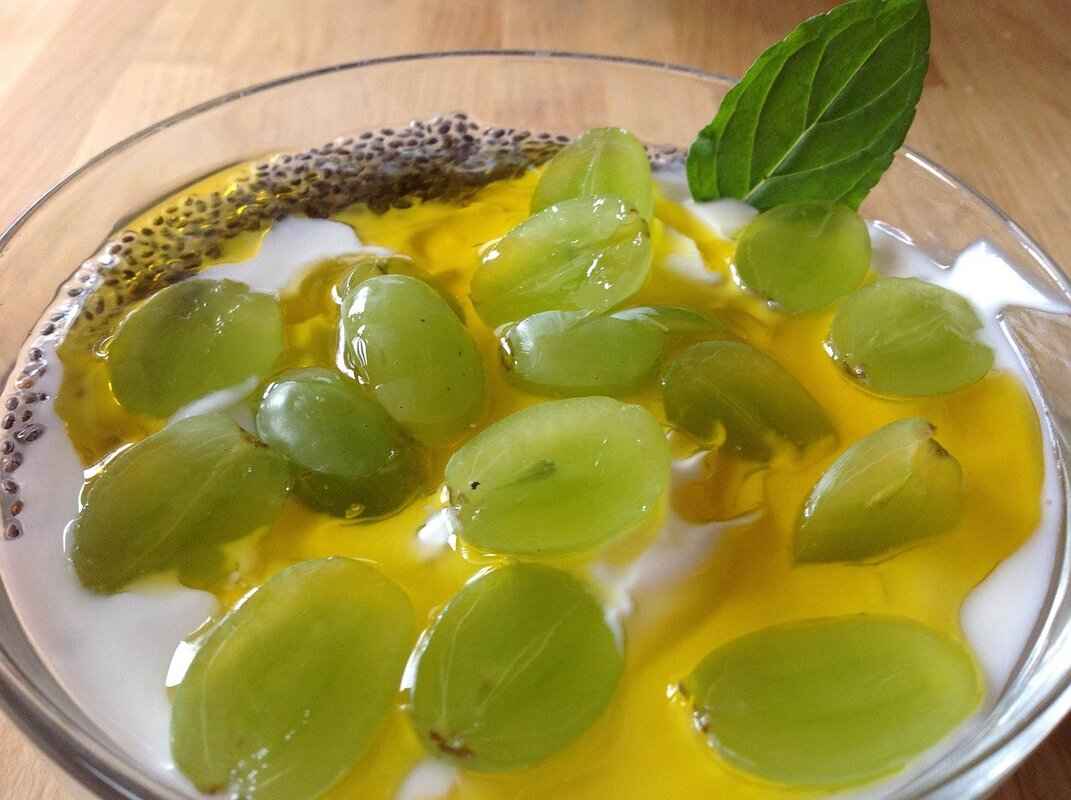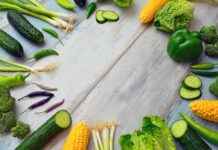Chia seeds have gained significant popularity in recent years, especially among pregnant women looking for nutritious food options. Packed with essential nutrients, these tiny seeds can play a vital role in supporting a healthy pregnancy. This article delves into the numerous nutritional benefits of chia seeds for expectant mothers, highlighting how they can enhance overall well-being during this critical time.
Chia seeds are small, black or white seeds derived from the Salvia hispanica plant, native to Central America. They are known for their impressive nutrient profile, which includes a variety of vitamins, minerals, and antioxidants. For pregnant women, understanding the importance of chia seeds can help in making informed dietary choices that support both their health and the development of their baby.
Incorporating chia seeds into a pregnant woman’s diet can significantly enhance nutritional balance. These seeds are an excellent source of omega-3 fatty acids, fiber, and protein, all of which are crucial during pregnancy. The omega-3 fatty acids found in chia seeds, particularly alpha-linolenic acid (ALA), are essential for fetal brain development and can help reduce inflammation in the body.
Chia seeds are a powerhouse of nutrients, providing:
- Calcium: Important for the development of the baby’s bones and teeth.
- Magnesium: Supports muscle and nerve function and helps regulate blood pressure.
- Antioxidants: Protect the body from oxidative stress, which is crucial during pregnancy.
Omega-3 fatty acids are essential for fetal brain and eye development. Chia seeds are one of the best plant-based sources of these vital nutrients, making them an excellent addition to a pregnant woman’s diet. Consuming sufficient amounts of omega-3s can contribute to better cognitive outcomes for the child.
DHA, a type of omega-3 fatty acid, is crucial for brain and eye development in the fetus. Pregnant women are encouraged to ensure they consume adequate amounts of DHA for optimal growth and development. Chia seeds, while not as high in DHA as fish, provide a valuable plant-based alternative for vegetarians and vegans.
Chia seeds are also high in fiber, which aids digestion and helps prevent constipation, a common issue during pregnancy. The soluble fiber in chia seeds absorbs water and forms a gel-like substance, promoting a feeling of fullness and supporting digestive health.
Chia seeds can absorb up to 12 times their weight in water, making them effective for hydration. Staying hydrated is crucial for pregnant women, as it supports various bodily functions and can help alleviate common pregnancy discomforts.
While chia seeds are generally safe, moderation is key. Some women may experience digestive discomfort if consumed in large quantities. It’s essential to monitor intake and consult with a healthcare professional if any concerns arise.
Chia seeds are versatile and can be easily added to various dishes. Here are some ideas:
- Add chia seeds to smoothies for an extra nutrient boost.
- Mix them into oatmeal or yogurt for added texture and nutrition.
- Use chia seeds in baking, such as in muffins or bread.
Nutritionists and healthcare providers often recommend chia seeds for their numerous health benefits. Consulting with a healthcare professional can provide personalized advice for incorporating them into a pregnancy diet, ensuring that mothers-to-be receive the best possible nutrition for themselves and their developing babies.

What Are Chia Seeds and Why Are They Important for Pregnancy?
Chia seeds are small, black or white seeds derived from the Salvia hispanica plant, native to Central America. These seeds have gained popularity in recent years due to their impressive nutritional profile and numerous health benefits. For expectant mothers, understanding the importance of chia seeds during pregnancy can lead to better dietary choices that support both their health and the development of their baby.
During pregnancy, a woman’s body undergoes significant changes, and her nutritional needs increase. Chia seeds are an excellent source of essential nutrients that can help meet these increased demands. They are particularly rich in omega-3 fatty acids, which play a vital role in fetal brain development. Additionally, chia seeds are packed with fiber, protein, and various vitamins and minerals, making them a perfect addition to a balanced diet.
Chia seeds are a powerhouse of essential nutrients, including:
- Calcium: Important for developing strong bones and teeth in the fetus.
- Magnesium: Supports muscle and nerve function, helping to reduce leg cramps during pregnancy.
- Antioxidants: Help combat oxidative stress, which can affect both the mother and the baby.
- Iron: Essential for producing hemoglobin, which carries oxygen to the fetus.
Incorporating chia seeds into a pregnant woman’s diet can enhance overall nutritional balance. The high fiber content in chia seeds aids in digestion, helping to prevent constipation, a common issue faced during pregnancy. Furthermore, the seeds can absorb up to 12 times their weight in water, which can aid in hydration—an essential aspect of pregnancy.
Chia seeds are incredibly versatile and can be easily added to various meals. Here are some practical ways to include them in your diet:
- Add chia seeds to smoothies for an extra nutritional boost.
- Mix them into oatmeal or yogurt for a satisfying breakfast.
- Use them as an egg substitute in baking by mixing chia seeds with water.
- Sprinkle them on salads or soups for added texture and nutrition.
It’s important to note that while chia seeds are generally safe for consumption during pregnancy, moderation is key. Some women may experience digestive discomfort if they consume large quantities. Therefore, it is advisable to start with small amounts and gradually increase intake as tolerated.
Nutritionists and healthcare providers often recommend chia seeds for their numerous health benefits. They are considered a superfood that can help meet the increased nutritional needs of pregnant women. Consulting with a healthcare professional can provide personalized advice on incorporating chia seeds into a pregnancy diet effectively.
In conclusion, chia seeds offer a wealth of nutritional benefits that can support a healthy pregnancy. By understanding their significance and incorporating them into daily meals, expectant mothers can enhance their diets and promote the well-being of both themselves and their developing babies.

How Do Chia Seeds Contribute to a Balanced Diet During Pregnancy?
Chia seeds have gained immense popularity in recent years, especially among health-conscious individuals. For pregnant women, these tiny seeds can play a significant role in enhancing nutritional balance during this crucial time. Incorporating chia seeds into a pregnant woman’s diet can provide essential nutrients that support both maternal health and fetal development.
Chia seeds are remarkably nutrient-dense, offering a wide array of benefits that can help pregnant women maintain a well-rounded diet. These seeds are an excellent source of omega-3 fatty acids, which are vital for the brain development of the fetus. Research indicates that adequate intake of omega-3s during pregnancy can lead to improved cognitive function in children.
In addition to omega-3s, chia seeds are rich in fiber, which is essential for digestive health. Pregnancy often comes with digestive challenges, including constipation. The high fiber content in chia seeds can help alleviate these issues by promoting regular bowel movements and improving overall gut health.
Moreover, chia seeds are packed with protein, making them a great addition to a vegetarian or vegan diet. Protein is crucial during pregnancy as it supports the growth of tissues, including the placenta and the developing fetus. A sufficient protein intake can also help manage hunger and maintain energy levels throughout the day.
| Nutrient | Benefits |
|---|---|
| Omega-3 Fatty Acids | Supports fetal brain development |
| Fiber | Aids digestion and prevents constipation |
| Protein | Supports tissue growth and energy levels |
| Calcium | Strengthens bones and teeth |
| Magnesium | Regulates muscle and nerve function |
Chia seeds also contain essential minerals such as calcium and magnesium, which are crucial for the health of both the mother and the developing fetus. Calcium helps in building strong bones and teeth, while magnesium plays a vital role in muscle and nerve function, as well as energy production.
While chia seeds are generally considered safe for consumption during pregnancy, moderation is key. Some women may experience digestive discomfort if they consume too many seeds at once. It is advisable to start with a small quantity, gradually increasing the intake to allow the body to adjust.
Integrating chia seeds into your daily meals is easy and enjoyable. They can be added to smoothies, oatmeal, yogurt, or even baked goods. Here are some simple ideas:
- Add a tablespoon of chia seeds to your morning smoothie for an added nutrient boost.
- Mix chia seeds into your oatmeal or yogurt for a crunchy texture.
- Use chia seeds as an egg substitute in baking by mixing them with water.
- Sprinkle chia seeds on salads for extra crunch and nutrition.
In conclusion, chia seeds are a powerhouse of nutrition that can significantly enhance a pregnant woman’s diet. Their rich content of omega-3 fatty acids, fiber, and protein, along with essential vitamins and minerals, makes them a valuable addition to prenatal nutrition. By incorporating chia seeds into daily meals, expectant mothers can support their health and the healthy development of their babies.

What Are the Key Nutrients Found in Chia Seeds?
Chia seeds are often hailed as a superfood, especially for pregnant women. Rich in essential nutrients, these tiny seeds pack a powerful punch when it comes to supporting the health of both the mother and the developing fetus. Understanding the key nutrients found in chia seeds can help expectant mothers make informed dietary choices.
Chia seeds are a nutrient-dense food that offers a variety of health benefits during pregnancy. Here are some of the most important nutrients found in chia seeds:
- Calcium: This mineral is crucial for the development of the fetus’s bones and teeth. Pregnant women need adequate calcium to support their own bone health as well.
- Magnesium: Important for muscle function and energy production, magnesium also plays a role in regulating blood pressure, which is vital during pregnancy.
- Antioxidants: Chia seeds are rich in antioxidants, which help combat oxidative stress and inflammation, promoting overall health for both mother and baby.
- Omega-3 Fatty Acids: These essential fats are vital for fetal brain development and are predominantly found in chia seeds in the form of alpha-linolenic acid (ALA).
- Fiber: Chia seeds are an excellent source of dietary fiber, which aids in digestion and helps prevent constipation, a common issue during pregnancy.
- Protein: Essential for the growth and development of the fetus, chia seeds provide a plant-based protein source that can complement a pregnant woman’s diet.
Incorporating these nutrients into a pregnant woman’s diet can significantly contribute to a healthy pregnancy. For example, the high fiber content in chia seeds not only supports digestive health but also helps regulate blood sugar levels, which is particularly beneficial for pregnant women.
The combination of calcium and magnesium found in chia seeds ensures that both the mother and baby receive the necessary minerals for strong bones and overall health. Calcium is especially important in the third trimester when the fetus rapidly accumulates bone mass.
Moreover, the antioxidants present in chia seeds help protect against cellular damage, which is crucial during pregnancy when the body undergoes significant changes. The presence of omega-3 fatty acids supports fetal brain and eye development, ensuring that the baby is born with optimal cognitive and visual function.
Integrating chia seeds into daily meals is easy and versatile. Here are some practical ways to enjoy chia seeds:
- Add them to smoothies for a nutrient boost.
- Mix them into oatmeal or yogurt for added texture and health benefits.
- Use chia seeds as an egg substitute in baking by mixing them with water.
- Sprinkle them on salads or incorporate them into energy bars for a healthy snack.
With their impressive nutrient profile, chia seeds can be a valuable addition to any pregnant woman’s diet. However, it is essential to consume them in moderation and consult with a healthcare provider for personalized advice.
In conclusion, chia seeds are a powerhouse of nutrients that can significantly benefit pregnant women. Their high content of calcium, magnesium, antioxidants, omega-3 fatty acids, fiber, and protein makes them an excellent choice for supporting both maternal and fetal health. By incorporating chia seeds into their diet, expectant mothers can take a proactive step towards a healthy pregnancy.
Omega-3 Fatty Acids
play a pivotal role in fetal brain development, making them essential during pregnancy. These vital nutrients contribute significantly to the healthy growth of the baby’s brain and nervous system. Among various sources, chia seeds stand out as one of the best plant-based options, offering an excellent way for pregnant women to meet their omega-3 needs.
Omega-3 fatty acids, particularly DHA (docosahexaenoic acid), are fundamental for cognitive and visual development in the fetus. Research indicates that adequate DHA intake during pregnancy can lead to improved brain function and a lower risk of developmental issues. Pregnant women are encouraged to ensure they consume sufficient omega-3s to support their baby’s growth.
Chia seeds are unique in that they are one of the few plant-based sources of omega-3 fatty acids. They contain a high concentration of alpha-linolenic acid (ALA), which the body can convert into DHA, although the conversion rate is not very high. Nevertheless, incorporating chia seeds into the diet can be a beneficial strategy for pregnant women, especially those who follow a vegetarian or vegan lifestyle.
- Fish: Often touted as the best source of omega-3s, fish provides both DHA and EPA (eicosapentaenoic acid). However, some pregnant women may avoid fish due to concerns about mercury exposure.
- Flaxseeds: Another plant-based source, flaxseeds also contain ALA, but chia seeds have a higher omega-3 content per serving.
- Walnuts: These nuts are another great source of ALA, but chia seeds are more versatile and easier to incorporate into various dishes.
In addition to omega-3s, chia seeds are packed with other essential nutrients that support a healthy pregnancy:
- Fiber: Chia seeds are rich in fiber, which promotes digestive health and helps alleviate constipation, a common issue during pregnancy.
- Calcium: Important for bone health, chia seeds provide a good source of calcium, which is crucial for both the mother and the developing fetus.
- Antioxidants: These compounds help combat oxidative stress, supporting overall health during pregnancy.
Incorporating chia seeds into your diet is simple and enjoyable. Here are some practical ideas:
- Add them to smoothies for a nutrient boost.
- Mix them into oatmeal or yogurt for added texture and nutrition.
- Use chia seeds as an egg substitute in baking by mixing them with water.
- Sprinkle them on salads or incorporate them into energy bars.
While chia seeds are generally safe and beneficial for pregnant women, it is always wise to consult with a healthcare provider or nutritionist. They can offer personalized advice and ensure that your diet meets all your nutritional needs during this crucial time.
In summary, are vital for fetal brain development, and chia seeds serve as an excellent plant-based source. By incorporating these tiny seeds into their diets, pregnant women can enhance their nutritional intake, supporting both their health and that of their growing baby.
Importance of DHA for Fetal Development
During pregnancy, the nutritional needs of a woman increase significantly, particularly for essential fatty acids. One of the most critical components is DHA (docosahexaenoic acid), a type of omega-3 fatty acid that plays a vital role in the development of the fetus. Research indicates that adequate DHA intake is crucial for proper brain and eye development in the growing baby.
Studies have shown that DHA is a major structural fat found in the brain and retina. It is essential for the formation of neural pathways and supports cognitive function. Pregnant women should aim to consume sufficient amounts of DHA to ensure optimal growth and development of their fetus. The recommended daily intake of DHA during pregnancy is approximately 200-300 mg, although individual needs may vary.
One of the primary benefits of DHA is its ability to enhance neurodevelopment. A well-developed brain is crucial for various cognitive functions, including memory, learning, and emotional regulation. Furthermore, DHA contributes to the formation of the retina, directly influencing the baby’s vision. Insufficient levels of DHA during pregnancy have been linked to potential developmental delays and visual impairments in children.
While fatty fish such as salmon and mackerel are well-known sources of DHA, many expectant mothers may seek plant-based alternatives. This is where chia seeds come into play. Chia seeds are an excellent source of ALA (alpha-linolenic acid), another type of omega-3 fatty acid that the body can convert into DHA, although the conversion rate is relatively low. Incorporating chia seeds into the diet can help vegetarians and vegans increase their omega-3 intake during pregnancy.
In addition to chia seeds, other plant-based sources of omega-3 include flaxseeds, walnuts, and hemp seeds. It is essential for pregnant women to consider these options if they do not consume fish. However, it is advisable to consult with a healthcare provider to determine the best sources of DHA for individual dietary preferences.
Furthermore, the timing of DHA intake is also crucial. The third trimester is particularly important for fetal brain development, and studies suggest that increased DHA consumption during this period can lead to improved cognitive outcomes in infants. Therefore, pregnant women should prioritize DHA-rich foods throughout their pregnancy.
In conclusion, DHA is a critical nutrient for fetal development, particularly for brain and eye health. Pregnant women should ensure they consume adequate amounts of this essential fatty acid through a combination of dietary sources, including both animal and plant-based options. By doing so, they can support their baby’s growth and development, laying a solid foundation for their future cognitive and visual abilities.
How Chia Seeds Compare to Other Omega-3 Sources
Chia seeds have gained popularity as a nutritional powerhouse, especially for pregnant women seeking plant-based sources of essential nutrients. One of the most significant benefits of chia seeds is their rich content of omega-3 fatty acids, which are crucial for fetal development. This article will delve deeper into how chia seeds compare to other omega-3 sources, particularly for those who follow vegetarian or vegan diets.
Omega-3 fatty acids play an essential role in the development of the fetal brain and nervous system. They are also linked to improved cognitive function and visual development in infants. Pregnant women are often advised to increase their intake of omega-3s to support these critical growth processes.
Chia seeds are one of the best plant-based sources of omega-3 fatty acids, specifically alpha-linolenic acid (ALA). ALA is a type of omega-3 that the body can convert into other forms, such as DHA and EPA, although the conversion rate is relatively low. This makes chia seeds an excellent option for those who do not consume fish or fish oil supplements.
| Source | Type of Omega-3 | Omega-3 Content (per 100g) |
|---|---|---|
| Chia Seeds | ALA | 17g |
| Salmon | DHA, EPA | 2.3g |
| Walnuts | ALA | 9g |
| Flaxseeds | ALA | 22g |
As seen in the table above, chia seeds provide a significant amount of ALA, making them a great option for those who prefer plant-based diets. In contrast, fatty fish like salmon are rich in DHA and EPA, which are the forms of omega-3s directly beneficial for fetal development. However, for vegetarians and vegans, chia seeds present a valuable alternative.
In addition to their omega-3 content, chia seeds are also rich in fiber, protein, calcium, and magnesium. This combination of nutrients supports not only the health of the mother but also the developing fetus. The high fiber content in chia seeds can help alleviate common digestive issues during pregnancy, such as constipation.
Adding chia seeds to your diet is easy and versatile. They can be sprinkled on top of smoothies, mixed into oatmeal, or used in baking. Chia pudding, made by soaking the seeds in liquid, is another popular way to enjoy their benefits. This not only enhances the flavor but also provides a nutritious snack option.
While chia seeds offer numerous health benefits, it is essential for pregnant women to consult with healthcare providers to ensure they meet their nutritional needs adequately. A balanced diet that includes a variety of nutrients is crucial for both maternal and fetal health.
In summary, chia seeds serve as an excellent plant-based alternative for omega-3 fatty acids, particularly for those who do not consume fish. Their rich nutrient profile makes them a valuable addition to a pregnant woman’s diet, supporting overall health and fetal development.
Fiber Content and Digestive Health
Chia seeds are renowned for their high fiber content, which plays a crucial role in promoting digestive health, especially during pregnancy. As many expectant mothers experience digestive issues such as constipation, incorporating chia seeds into their diet can be a simple yet effective solution.
These tiny seeds are composed of approximately 34% fiber, making them one of the richest sources of dietary fiber available. This fiber is primarily soluble, which means it absorbs water and forms a gel-like consistency in the digestive tract. This property not only helps to soften stools but also promotes regular bowel movements, thus alleviating constipation. Regular consumption of chia seeds can lead to improved gut health, which is essential for overall maternal well-being.
Moreover, the fiber in chia seeds aids in maintaining a healthy weight during pregnancy. By creating a feeling of fullness, chia seeds can help control appetite and prevent excessive weight gain. This is particularly important, as managing weight can help reduce the risk of complications such as gestational diabetes and hypertension.
In addition to aiding digestion, the fiber found in chia seeds also supports gut microbiota. A healthy gut microbiome is beneficial for nutrient absorption and can enhance the immune system, providing additional protection for both mother and baby. The prebiotic properties of fiber serve as food for beneficial gut bacteria, promoting a balanced digestive environment.
How to Incorporate Chia Seeds for Digestive Health?
- Chia Pudding: Mix chia seeds with your choice of milk or yogurt and let them soak overnight. This creates a delicious and nutritious pudding that can be enjoyed for breakfast or as a snack.
- Smoothies: Add a tablespoon of chia seeds to your favorite smoothie recipe for an extra fiber boost.
- Baked Goods: Incorporate chia seeds into muffins, bread, or pancakes for added nutrition.
While chia seeds offer numerous benefits, it is essential to consume them in moderation. For some women, excessive fiber intake can lead to digestive discomfort, such as bloating or gas. It is advisable to gradually introduce chia seeds into the diet and ensure adequate hydration, as the seeds absorb a significant amount of water.
In summary, the fiber content of chia seeds is a valuable asset for pregnant women, aiding in digestion and preventing constipation. By incorporating these nutrient-dense seeds into their diet, expectant mothers can enhance their digestive health and overall well-being, contributing to a more comfortable pregnancy experience.
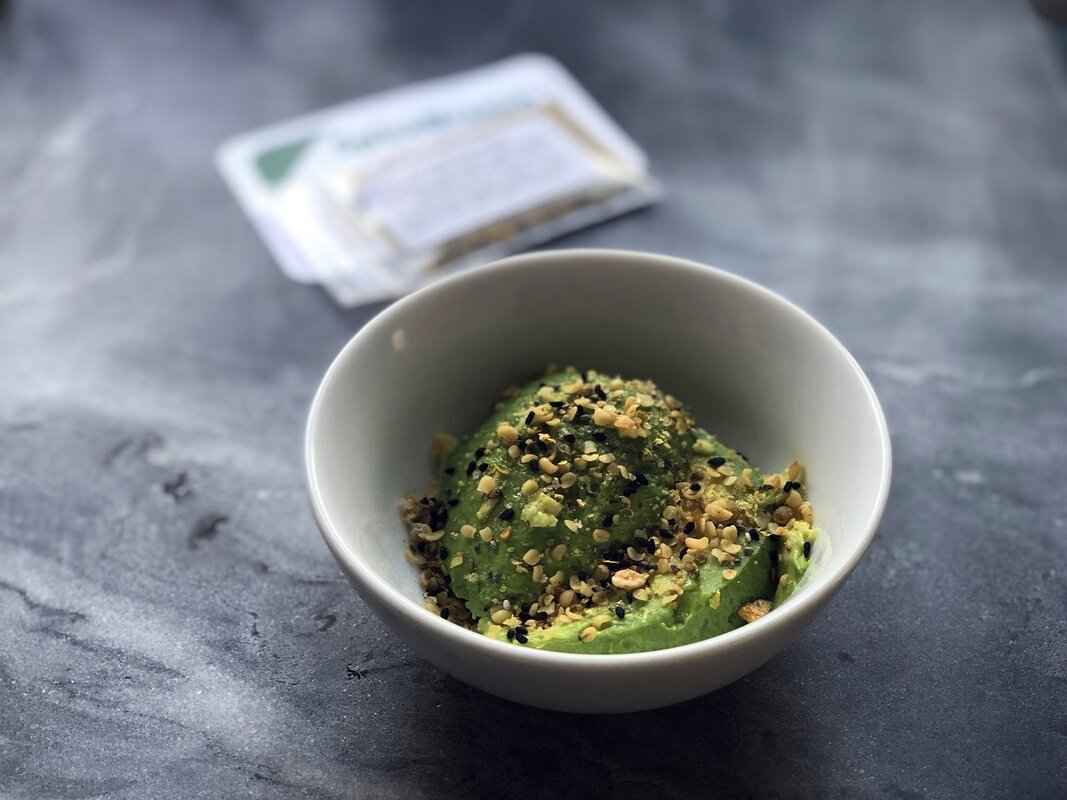
Can Chia Seeds Help with Hydration During Pregnancy?
During pregnancy, maintaining proper hydration is essential for the health of both the mother and the developing baby. One of the lesser-known yet highly beneficial foods that can assist with hydration is chia seeds. These tiny seeds are not only rich in nutrients but also possess remarkable properties that can help pregnant women stay hydrated.
Chia seeds can absorb up to 12 times their weight in water, which makes them an excellent addition to a hydration-focused diet. When soaked in water or other liquids, they swell and form a gel-like substance. This process not only increases the volume of liquid consumed but also helps the body retain moisture, which is crucial during pregnancy.
Staying hydrated is vital for various bodily functions, including:
- Regulating body temperature: Proper hydration helps the body maintain a stable temperature.
- Supporting nutrient transport: Water is essential for transporting nutrients to the fetus.
- Reducing swelling: Adequate hydration can help minimize swelling in the hands and feet.
- Preventing constipation: Drinking enough fluids aids digestion and helps prevent the discomfort of constipation, a common issue during pregnancy.
Integrating chia seeds into daily meals can be both simple and enjoyable. Here are some practical suggestions:
- Chia Pudding: Soak chia seeds in almond milk or coconut milk overnight to create a nutritious pudding. Add fruits for flavor and additional hydration.
- Smoothies: Blend chia seeds into smoothies for a nutrient boost. They add texture and help keep you feeling full.
- Infused Water: Add chia seeds to your water or herbal teas for a refreshing drink that hydrates and nourishes.
While chia seeds are generally safe for consumption during pregnancy, moderation is key. Some women may experience digestive discomfort, such as bloating or gas, if they consume too many seeds at once. It is advisable to start with a small amount and gradually increase intake while monitoring how the body reacts.
Nutritionists and healthcare providers often highlight the benefits of chia seeds for hydration. They recommend incorporating these seeds into a balanced diet to support overall health during pregnancy. Consulting with a healthcare professional can provide personalized guidance tailored to individual dietary needs.
In summary, chia seeds are a powerful ally for pregnant women looking to enhance their hydration. Their unique ability to absorb water, combined with their rich nutritional profile, makes them an excellent choice for maintaining hydration and supporting overall health during this crucial time.

Are There Any Risks Associated with Consuming Chia Seeds During Pregnancy?
Chia seeds have gained popularity as a superfood, especially among pregnant women seeking to enhance their nutrition. While these tiny seeds are packed with beneficial nutrients, it is vital to understand the potential risks associated with their consumption during pregnancy.
While chia seeds are generally considered safe for most pregnant women, moderation is crucial. These seeds are rich in fiber, and consuming them in excessive amounts can lead to digestive issues. Some women may experience symptoms such as bloating, gas, or even constipation if they exceed the recommended daily intake.
It is essential to monitor your chia seed consumption. A typical serving size is about 1-2 tablespoons per day. Consuming more than this can overwhelm your digestive system, especially if you are not accustomed to a high-fiber diet. Pregnant women should gradually introduce chia seeds into their meals to allow their bodies to adjust.
Another consideration is the hydration factor. Chia seeds can absorb up to 12 times their weight in water, which can be beneficial for hydration. However, if not consumed with adequate fluids, they may lead to dehydration or digestive blockages. It’s important to drink plenty of water when incorporating chia seeds into your diet.
Some women may also have allergies or sensitivities to chia seeds. Although rare, allergic reactions can manifest as skin rashes, itching, or gastrointestinal discomfort. If you notice any adverse effects after consuming chia seeds, it is advisable to discontinue use and consult your healthcare provider.
Furthermore, consider the source of your chia seeds. Organic and non-GMO options are preferable, as they are less likely to contain harmful pesticides or additives. Always check for quality and freshness, as stale seeds may not only lose their nutritional value but could also cause digestive issues.
In summary, while chia seeds offer numerous health benefits for pregnant women, it is crucial to consume them in moderation and with awareness of your body’s reactions. Consulting with a healthcare professional can provide personalized guidance on incorporating chia seeds into your pregnancy diet safely.
Overall, understanding the potential risks associated with chia seed consumption is essential for maintaining a healthy pregnancy. By being mindful of your intake and listening to your body, you can enjoy the nutritional advantages that chia seeds bring without compromising your digestive health.
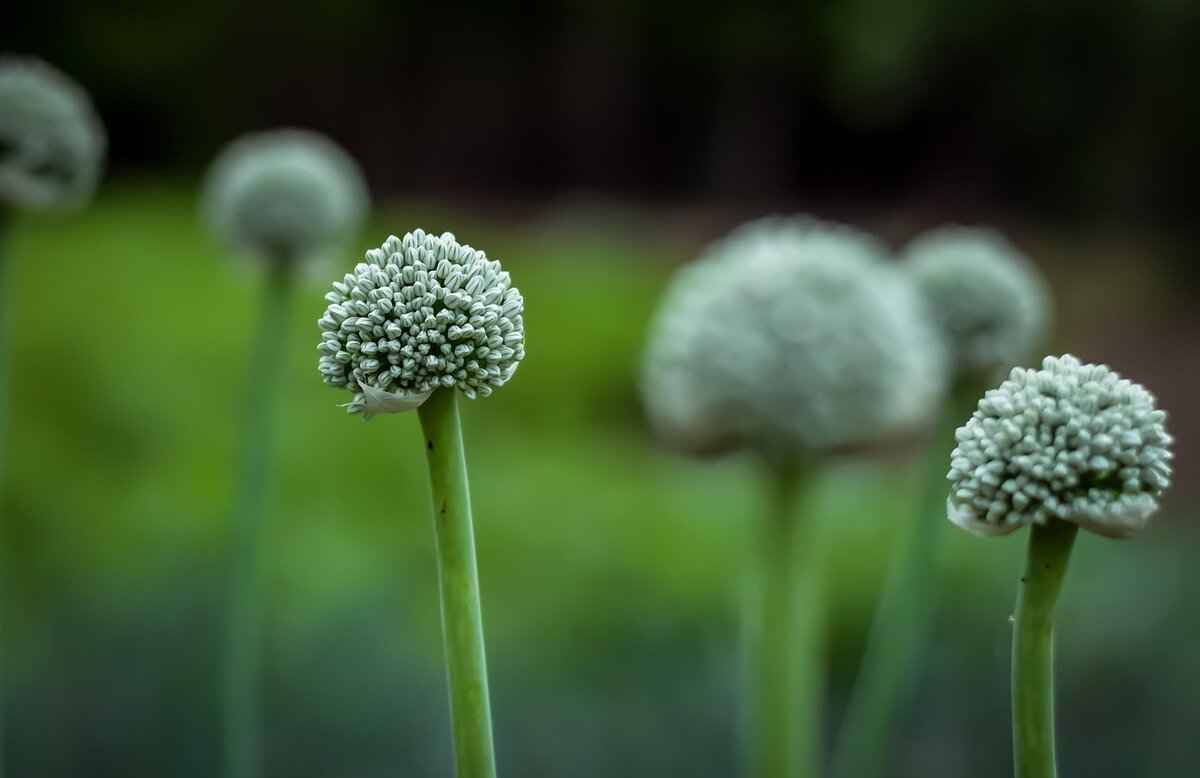
How to Incorporate Chia Seeds into Your Diet?
Incorporating chia seeds into your diet during pregnancy can be both enjoyable and beneficial. These tiny seeds are not only packed with nutrients but also offer a variety of ways to enhance your meals. Here are some creative and easy methods to include chia seeds in your daily routine:
- Smoothies: One of the simplest ways to enjoy chia seeds is by adding them to your morning smoothie. Blend your favorite fruits, leafy greens, and a tablespoon of chia seeds for a nutrient-rich drink that supports your health and energy levels.
- Oatmeal: Sprinkle chia seeds on your oatmeal for added texture and nutrition. Combine them with nuts, fruits, and a drizzle of honey to create a delicious breakfast that keeps you full for longer.
- Baked Goods: Chia seeds can be incorporated into various baked goods, such as muffins, pancakes, and bread. They not only enhance the nutritional profile but also act as a binding agent, making them a great substitute for eggs in vegan recipes.
- Chia Pudding: A popular choice among health enthusiasts, chia pudding is easy to make. Combine chia seeds with your choice of milk (dairy or plant-based) and let them soak overnight. Add fruits, nuts, or granola in the morning for a delightful breakfast or snack.
- Salads: For a nutritious crunch, sprinkle chia seeds over salads. They can absorb the dressing and add a delightful texture to your greens.
- Soups and Stews: Chia seeds can be added to soups and stews as a thickening agent. They help to create a heartier consistency while providing essential nutrients.
- Energy Bars: Homemade energy bars are another excellent way to use chia seeds. Combine them with oats, nut butter, and a sweetener of your choice, then refrigerate until firm. These bars make a convenient snack for busy moms-to-be.
When incorporating chia seeds into your diet, it’s important to start with small amounts and gradually increase your intake. This approach helps your digestive system adjust, as chia seeds are high in fiber. Additionally, be sure to drink plenty of water, as chia seeds can absorb significant amounts of liquid, aiding in hydration.
Experimenting with different recipes can make the inclusion of chia seeds a fun and delicious part of your pregnancy journey. Not only will you enjoy their health benefits, but you will also find joy in discovering new ways to enhance your meals. Remember, consulting with a healthcare professional can provide personalized guidance on incorporating chia seeds into your diet safely and effectively.
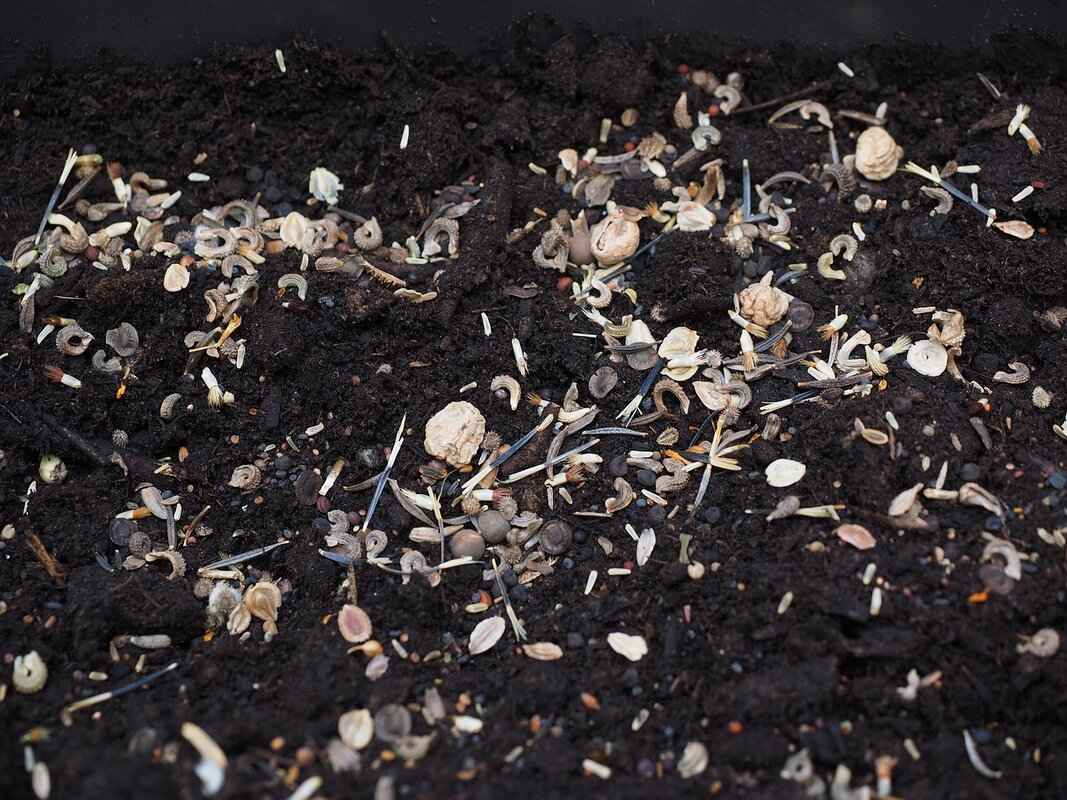
What Do Experts Say About Chia Seeds and Pregnancy?
Nutritionists and healthcare providers frequently highlight the benefits of chia seeds for pregnant women, emphasizing their nutrient-rich profile. These tiny seeds are not just a trendy superfood; they are packed with essential vitamins and minerals that can significantly contribute to a healthy pregnancy.
Chia seeds are known for their high content of omega-3 fatty acids, which are crucial for fetal brain development. According to health experts, including chia seeds in a pregnant woman’s diet can provide a plant-based source of these essential fats, which is particularly beneficial for those who may not consume fish or other animal products. Additionally, chia seeds are rich in fiber, which helps maintain digestive health, a critical aspect during pregnancy when many women experience constipation.
Another important nutrient found in chia seeds is calcium. This mineral is vital for the development of the baby’s bones and teeth. Pregnant women need to ensure they receive adequate calcium, and chia seeds can be an excellent addition to their diet. Experts recommend incorporating these seeds into various meals, from smoothies to salads, to enhance nutritional intake.
Furthermore, chia seeds are loaded with antioxidants that help combat oxidative stress, which can be heightened during pregnancy. The protective properties of these antioxidants can support both maternal and fetal health, making chia seeds a valuable dietary inclusion.
However, healthcare professionals advise moderation. While chia seeds offer numerous benefits, excessive consumption may lead to digestive discomfort due to their high fiber content. Pregnant women should consult with their healthcare provider to determine the appropriate amount to include in their diet.
Incorporating chia seeds into a pregnancy diet can be simple and enjoyable. They can be added to yogurt, mixed into oatmeal, or used in baked goods. This versatility makes it easy for expectant mothers to enjoy the health benefits without compromising on taste.
Experts also suggest that pregnant women consider the source of their chia seeds. Choosing organic options can ensure that they are free from pesticides and other harmful substances, which is particularly important during pregnancy.
In summary, the consensus among nutritionists and healthcare providers is clear: chia seeds can be a beneficial addition to a pregnant woman’s diet. Their rich nutrient profile supports both maternal and fetal health, making them a worthy consideration for expectant mothers. Always consult with a healthcare professional for personalized dietary advice, ensuring a balanced and healthful approach to nutrition during this crucial time.
Frequently Asked Questions
- What are the primary health benefits of chia seeds during pregnancy?
Chia seeds are packed with essential nutrients like omega-3 fatty acids, fiber, and protein. These components support fetal development, enhance digestive health, and help maintain energy levels for moms-to-be.
- How can I incorporate chia seeds into my daily diet?
You can easily add chia seeds to smoothies, oatmeal, or yogurt. They can also be sprinkled on salads or used in baking, making them a versatile ingredient for expectant mothers.
- Are there any risks associated with consuming chia seeds during pregnancy?
While chia seeds are generally safe, moderation is key. Some women may experience digestive discomfort if they consume too many, so it’s best to start with small amounts and monitor your body’s response.
- Can chia seeds help with hydration during pregnancy?
Absolutely! Chia seeds can absorb up to 12 times their weight in water, which can help keep you hydrated. Staying hydrated is crucial for overall health during pregnancy.
- What do nutritionists say about chia seeds for pregnant women?
Many nutritionists recommend chia seeds due to their rich nutrient profile. However, it’s always a good idea to consult with a healthcare professional for personalized dietary advice during pregnancy.

